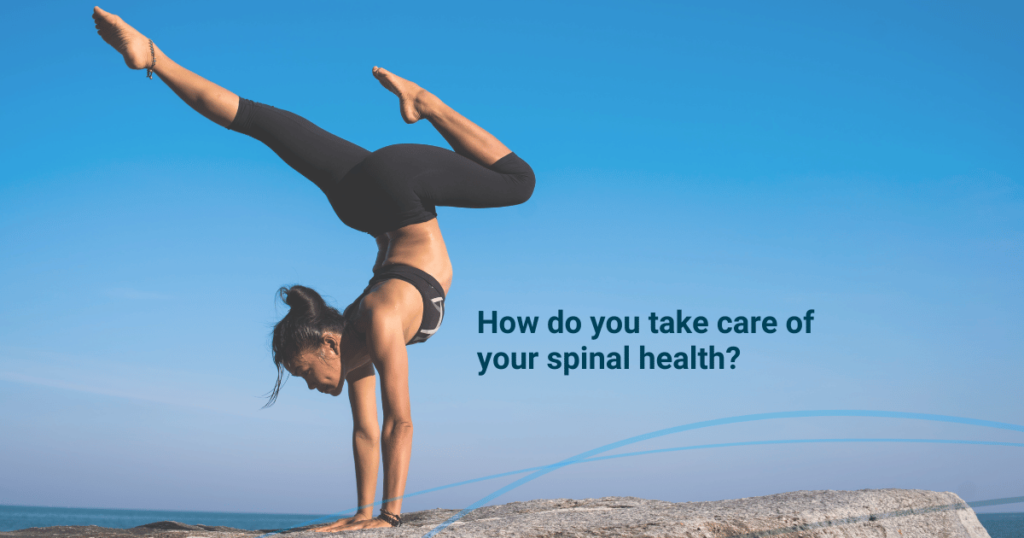
Jaide Vidafar is a sterilisation supervisor, a former emergency dispatcher and an aspiring doctor.
3 minute read
Standing tall: spinal health in the bush
What’s in this article
Here we chat with Dr Cameron Downes, an orthopaedic spinal surgeon from Far North Queensland, to get his take on spinal health and what people living in rural areas can do to keep their backs strong.

Whether you’re tossing feed on the farm, spending long hours on the road, or just getting through a regular workday, your spine carries the load. But for those of us living in the bush, accessing proper spinal care can feel like a long haul.
We sat down with Dr Cameron Downes, an orthopaedic spinal surgeon from Far North Queensland, to get his take on spinal health and what people living in rural areas can do to keep their backs strong. Cameron’s an average bloke, the kind you could have a yarn with over a cuppa. No airs, no graces – just genuine care for his patients and a down-to-earth attitude that makes you feel like you’re chatting with a mate rather than a surgeon.
Spinal Health in the bush: A tougher road
Living with back pain in Far North Queensland can seem like part of the territory. But Dr Downes points out that while many patients accept their pain as just part of life, it doesn’t have to be that way.
“People in North Queensland tend to put up with pain longer compared to those down south,” he says. It’s not about being tougher – it’s just the reality of living far from specialist care. But preventative care and early intervention are key to avoiding long-term damage.
When to seek help: Early intervention matters
If your back pain is affecting your work, family life, or ability to get around, it’s time to get checked. Dr Downes stresses that early intervention makes a big difference. “If your quality of life is really suffering, it’s important to seek medical advice early,” he said.
Surgery isn’t always the answer. Often, conservative treatments – like physiotherapy and exercise – can work wonders. It’s about paying attention to your body before things get worse.
Spinal health basics: Motion is lotion
“Motion is lotion.” That’s Dr Downes’ key message for keeping your spine healthy. Regular movement keeps the joints lubricated, the muscles strong, and the body functioning as it should. Whether you’re taking a walk, doing light stretches, or even just bending down to feed the chooks, keeping your body moving is essential.
Here’s how to put it into practice, according to Dr Downes:
• Stay active: Whether it’s a stroll, walking the dog, or a swim, gentle movement helps ease stiffness and prevent issues. Keeping the body moving is like giving your spine a much-needed oil change.
• Strengthen your core: Your core muscles support your spine. Simple activities like planks or engaging your core while gardening help take the load off your back.
• Posture matters: Maintaining good posture during physical work or long periods of sitting is essential. Avoid slumping or rounding your shoulders.
• Exercise doesn’t have to be a chore: Think of exercise as movement, not a gym session. Walking around the yard, stretching, or doing light housework – all of it helps maintain spinal health.
• Preventative care is crucial: Don’t wait until the pain is unbearable. Early intervention – whether through GPs, physiotherapists, or allied health professionals – will help prevent bigger problems.
The importance of preventative care
If there’s one thing Dr Downes is passionate about, it’s getting people to think about preventative care before they hit a crisis point. Too often, he sees patients whose conditions have worsened simply because they didn’t seek help early. “You don’t have to live with the pain,” he said, encouraging people to seek advice when they first notice problems rather than letting things progress.
One way to prevent issues is to make movement a regular part of your routine. Cameron reminds us that keeping the muscles around the spine strong and flexible can make a world of difference. “We all have to accept that some discomfort is part of ageing, but with the right approach, we can maintain a good quality of life.”
Thank you to Dr Cameron Downes
We couldn’t wrap this up without a proper thanks to Dr Cameron Downes. Between his busy schedule and being on the road for hours to serve patients in more remote areas, Cameron was generous enough to share his insights on spinal health.
It’s clear that spine care isn’t just about surgery. It’s about community, access, and giving people the tools they need to look after themselves – especially in the bush. Dr Downes embodies that commitment, not just through his practice but through his advocacy for rural healthcare. As he says, “I feel that what I do is a privilege, and I hope other people getting involved in health feel the same way.”
So, let’s take a leaf out of Dr Downes’ book and focus on preventative care. Whether you’re working on the land, in an office, or just going about your daily life, your spine is one of the most important parts of your body – so treat it well.
Remember to stay active, strengthen your core, and don’t ignore the early signs of pain. For those living in rural and remote areas, seeking help early can mean the difference between living with chronic pain and staying mobile. And through it all, keep Cameron’s advice at the front of your mind: motion is lotion.
Growing up across the Cape with a single mother who served as a nurse, Jaide Vidafar developed a profound respect for healthcare from a young age. Now an aspiring doctor, Jaide is passionate about improving healthcare accessibility in rural and remote communities.


